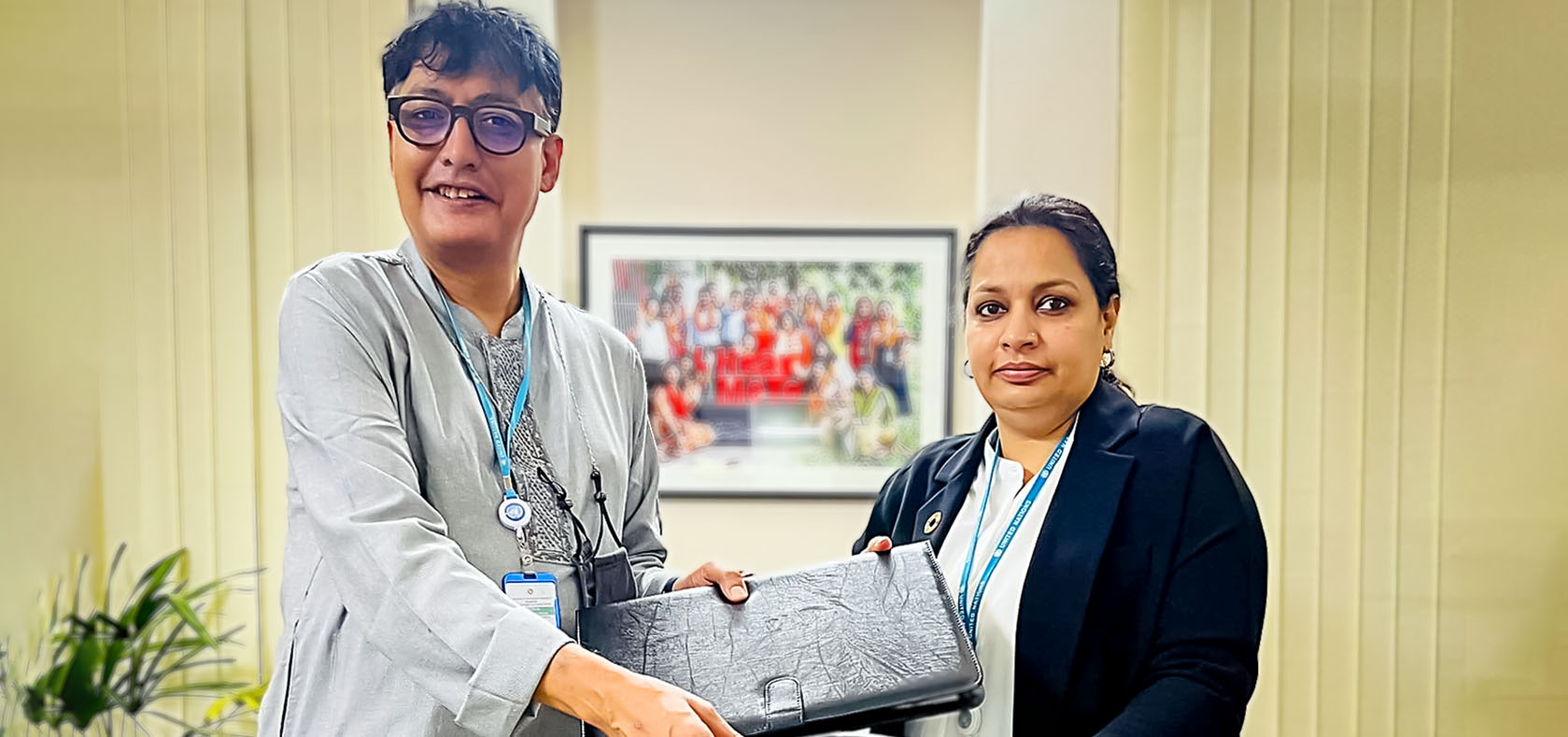UN Women and UNDP deepen cooperation to advance gender equality and women’s empowerment in Bangladesh
Date:
Author: Shararat Islam

UN Women has partnered with the UN Development Programme (UNDP) to boost gender equality and women’s empowerment in Bangladesh. The two agencies signed an inter-agency agreement for the period 2022-2026 to promote gender-responsive inclusive governance, social protection and disaster risk reduction, women’s economic empowerment and access to justice as well as to fight discrimination against women at all levels in Bangladesh.
“Gender equality and women's empowerment have been given special significance in the UN Sustainable Development Cooperation Framework (2022-2026) of Bangladesh. We will continue to work together with UN Women Bangladesh to achieve the set goals,” said Sudipto Mukerjee, Country Representative, UNDP Bangladesh.
Bangladesh, which has experienced accelerated income growth in recent decades, has made progress on its health, education, and several gender indicators. However, the rapid economic growth has aggravated patterns of marginalization, exclusion and discrimination, leaving out many vulnerable groups – especially women – from the country’s development. The COVID-19 pandemic has further slowed down this progress, even reversing some development gains.
Against this backdrop, both agencies have agreed to collaborate to create an enabling environment and accountable governance mechanism to promote the voice, choice, agency and security of women and girls in Bangladesh. This collaboration will further support recovery from the effects of the COVID -19 pandemic and ensure sustainable LDC graduation for the country.
“Leveraging our comparative advantages, this partnership will help us to make gender equality a lived reality in Bangladesh,” said Gitanjali Singh, Head of Office, a.i., UN Women Bangladesh.
In line with the Government’s 8th Five-Year Plan (FYP) for 2020-2025 and the United Nations Sustainable Development Cooperation Framework (UNSDCF) 2022-2026, the two agencies will formalize this partnership and focus on:
– Normative Agenda, Laws, Policy and Financing
- Implementation, monitoring and reporting on global normative frameworks (e.g., CEDAW, Beijing Platform for Action, UN Security Council Resolution 1325, Nationally Determined Contribution NDC, Sendai Framework, SDGs and the Universal Periodic Review)
- Gender-responsive laws, policies, plans and institutions at the national and local levels
- Financing for gender equality, with a focus on high-impact financing that is aligned with the gender equality objectives specified in national and global commitments; financing to address discriminatory legislation
– Women’s Empowerment and Access to Services
- Women’s voice, leadership and agency across sectors
- Economic empowerment of women by supporting women-led micro, small and medium enterprises (MSMEs) and by promoting the financial inclusion of women; skills training in e-commerce and outsourcing
- Women's equitable access to services, goods and resources
- Women’s access to justice and gender-responsive policing and support for the Bangladesh Policewomen’s Network
– Civic Education, Data, Innovation and Planning
- Promotion of positive social norms with an emphasis on the participation of men and boys
- Production, analysis and use of gender statistics and sex-disaggregated data
- Innovative interventions on behalf of gender equality by using the UNDP Accelerator Lab
– Coordination and Partnership
- Strengthening of UN System coordination for gender equality as part of the Gender Equality Theme Group (GETG) plans
- Partnership with the private sector to advance gender equality commitments
– Cox’s Bazar
- Advance district planning and budgeting, access to justice and zero tolerance of gender-based violence in Cox’s Bazar